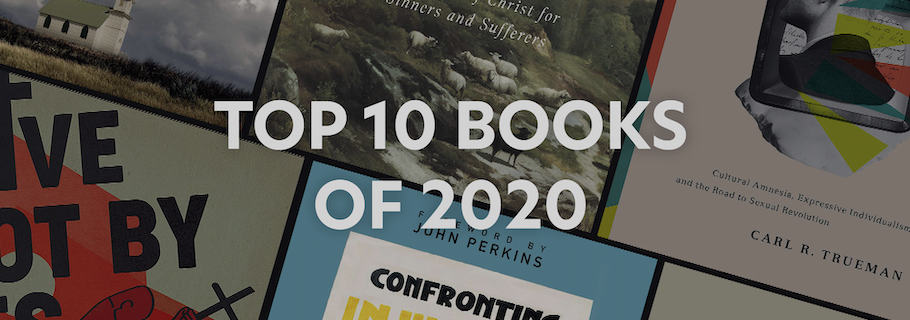We have just about arrived at the end of another year—a year in which I did quite a lot of reading across a variety of subjects. Today I want to offer my picks for the top 10 books of 2020. I have put them in some semblance of order with my first pick at the top and the rest in roughly descending order. In each case I’ve included a short description drawn from my full-length review. I guess you’ll see as you browse through the list that my focus this year was on contemporary issues… (Also, I know I included 11 books in this top 10; I just couldn’t choose which one to eliminate.)
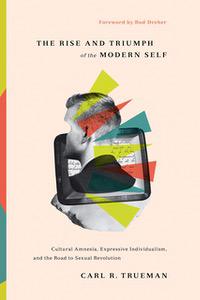 The Rise and Triumph of the Modern Self: Cultural Amnesia, Expressive Individualism, and the Road to Sexual Revolution by Carl Trueman. “I am a woman trapped in a man’s body.” While this is a phrase we have grown accustomed to hearing in recent years, it is a phrase that would have been incomprehensible to those who lived and died just a couple of generations in the past. While it is full of meaning today, it would have been void of meaning back then. So what has happened in recent decades to make that phrase make sense? The Rise and Triumph of the Modern Self offers an explanation. While it is a demanding read, especially for those of us for whom many of these categories and characters are unfamiliar, it is a rewarding read. In its pages Trueman aptly explains how and why our culture has arrived at a place where that phrase is no longer nonsensical, no longer self-contradictory. And it begins to explain what is at stake if this long march is not interrupted, not refuted according to truth. As I see it, this is not only the most important book I read in 2020, but also the best. I can’t recommend it too highly. (Buy it at Amazon or Westminster Books; Read my review)
The Rise and Triumph of the Modern Self: Cultural Amnesia, Expressive Individualism, and the Road to Sexual Revolution by Carl Trueman. “I am a woman trapped in a man’s body.” While this is a phrase we have grown accustomed to hearing in recent years, it is a phrase that would have been incomprehensible to those who lived and died just a couple of generations in the past. While it is full of meaning today, it would have been void of meaning back then. So what has happened in recent decades to make that phrase make sense? The Rise and Triumph of the Modern Self offers an explanation. While it is a demanding read, especially for those of us for whom many of these categories and characters are unfamiliar, it is a rewarding read. In its pages Trueman aptly explains how and why our culture has arrived at a place where that phrase is no longer nonsensical, no longer self-contradictory. And it begins to explain what is at stake if this long march is not interrupted, not refuted according to truth. As I see it, this is not only the most important book I read in 2020, but also the best. I can’t recommend it too highly. (Buy it at Amazon or Westminster Books; Read my review)
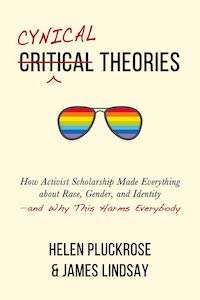 Cynical Theories: How Activist Scholarship Made Everything about Race, Gender, and Identity―and Why This Harms Everybody by James Lindsay and Helen Pluckrose. You can’t read the news, you can’t scroll through Twitter, you can’t browse a bookstore, you probably can’t even talk to a neighbor without realizing that somehow everything has become about race, gender, and identity. In a short period of time we’ve been introduced to a whole new vocabulary that conveys a whole new set of ideas. Where did these ideas come from? How did they gain such a strong foothold within our culture? And what is likely to happen to our society as we further embrace them and follow them to their logical conclusions? These are the concerns of Cynical Theories. Though it is not written from a Christian perspective, it still offers a crucial explanation that will help Christians better understand the culture around us. (Buy it at Amazon; Read my review)
Cynical Theories: How Activist Scholarship Made Everything about Race, Gender, and Identity―and Why This Harms Everybody by James Lindsay and Helen Pluckrose. You can’t read the news, you can’t scroll through Twitter, you can’t browse a bookstore, you probably can’t even talk to a neighbor without realizing that somehow everything has become about race, gender, and identity. In a short period of time we’ve been introduced to a whole new vocabulary that conveys a whole new set of ideas. Where did these ideas come from? How did they gain such a strong foothold within our culture? And what is likely to happen to our society as we further embrace them and follow them to their logical conclusions? These are the concerns of Cynical Theories. Though it is not written from a Christian perspective, it still offers a crucial explanation that will help Christians better understand the culture around us. (Buy it at Amazon; Read my review)
 Gentle and Lowly: The Heart of Christ for Sinners and Sufferers by Dane Ortlund. Through 23 short chapters—chapters that can easily be read in a sitting, and chapters that are as suited to out-loud reading as silent reading—Ortlund shows his readers the heart of Christ (as distinguished from the better-known actions of Christ). He begins with Jesus’s own self-description: “I am gentle and lowly in heart” (Matthew 11:28-30). The heart of Jesus is meek and humble and therefore he is kind and accessible and both willing and able to help those who need him. Those who qualify for his attention are not those who are cleaned up and put together, but those who are weary and heavily burdened. To these he makes the sweet promise of rest. “If we are asked to say only one thing about who Jesus is, we would be honoring Jesus’s own teaching if our answer is, gentle and lowly.” But Jesus is far more than that. Jesus is happy and sympathetic. He treats us with gentleness and promises never to give up on us. He is an advocate for us and a committed friend. He is rich in mercy and tender in his affections and eternal in his love. He is all this and so much more. All the great things he has done for sinners like us flow out of the very heart of who he is. To know him is to love him. Gentle and Lowly is a sweet and comforting book that will grow your knowledge, provoke your worship, and inspire your devotion. Best of all, it will help you to know, love, and trust our God and Savior, Jesus Christ. (Buy it at Amazon or Westminster Books; Read my review)
Gentle and Lowly: The Heart of Christ for Sinners and Sufferers by Dane Ortlund. Through 23 short chapters—chapters that can easily be read in a sitting, and chapters that are as suited to out-loud reading as silent reading—Ortlund shows his readers the heart of Christ (as distinguished from the better-known actions of Christ). He begins with Jesus’s own self-description: “I am gentle and lowly in heart” (Matthew 11:28-30). The heart of Jesus is meek and humble and therefore he is kind and accessible and both willing and able to help those who need him. Those who qualify for his attention are not those who are cleaned up and put together, but those who are weary and heavily burdened. To these he makes the sweet promise of rest. “If we are asked to say only one thing about who Jesus is, we would be honoring Jesus’s own teaching if our answer is, gentle and lowly.” But Jesus is far more than that. Jesus is happy and sympathetic. He treats us with gentleness and promises never to give up on us. He is an advocate for us and a committed friend. He is rich in mercy and tender in his affections and eternal in his love. He is all this and so much more. All the great things he has done for sinners like us flow out of the very heart of who he is. To know him is to love him. Gentle and Lowly is a sweet and comforting book that will grow your knowledge, provoke your worship, and inspire your devotion. Best of all, it will help you to know, love, and trust our God and Savior, Jesus Christ. (Buy it at Amazon or Westminster Books; Read my review)
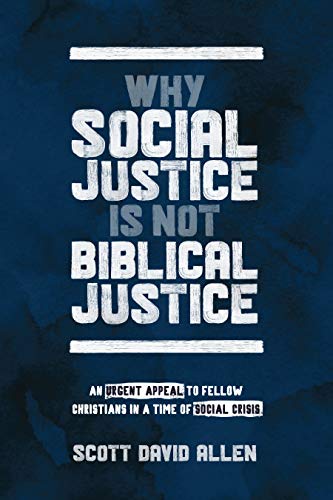 Why Social Justice Is Not Biblical Justice: An Urgent Appeal to Fellow Christians in a Time of Social Crisis by Scott David Allen. A new challenge to the twenty-first century church is the church of social justice. Will social justice prove to be a fearsome foe? Will it prove to be the dominant challenge to orthodox Christianity in the twenty-first century? Only time will tell. In the meantime, we will be well served with books that help us sharpen our understanding of true justice and help us combat any counterfeits. Scott David Allen’s Why Social Justice Is Not Biblical Justice is among the first book-length responses and it is one that makes a valuable contribution. Its strength is not just in calling people away from unbiblical notions of justice, but in calling people toward a fully-formed worldview in which Christians care more for justice—true justice—than anyone else. “This is my plea,” he says. “Recognize and reject the counterfeit. Remember what true justice is. Hold fast to that truth, no matter how unpopular. Speak it out. Demonstrate it. Be the salt and light Jesus commands us to be.” To that I give a hearty “Amen!” (Buy it at Amazon; Read my review)
Why Social Justice Is Not Biblical Justice: An Urgent Appeal to Fellow Christians in a Time of Social Crisis by Scott David Allen. A new challenge to the twenty-first century church is the church of social justice. Will social justice prove to be a fearsome foe? Will it prove to be the dominant challenge to orthodox Christianity in the twenty-first century? Only time will tell. In the meantime, we will be well served with books that help us sharpen our understanding of true justice and help us combat any counterfeits. Scott David Allen’s Why Social Justice Is Not Biblical Justice is among the first book-length responses and it is one that makes a valuable contribution. Its strength is not just in calling people away from unbiblical notions of justice, but in calling people toward a fully-formed worldview in which Christians care more for justice—true justice—than anyone else. “This is my plea,” he says. “Recognize and reject the counterfeit. Remember what true justice is. Hold fast to that truth, no matter how unpopular. Speak it out. Demonstrate it. Be the salt and light Jesus commands us to be.” To that I give a hearty “Amen!” (Buy it at Amazon; Read my review)
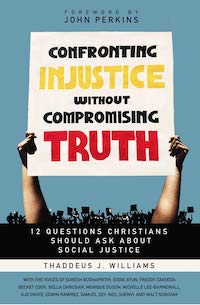 Confronting Injustice without Compromising Truth: 12 Questions Christians Should Ask About Social Justice by Thaddeus Williams. We have been waiting for a genuinely Christian interpretation and critique of the social justice movement, and Thaddeus Williams provides it in Confronting Injustice without Compromising Truth, a book he wrote precisely because he cares so deeply about true justice. He distinguishes between Social Justice A and Social Justice B, the A variation being one that is consistent with a Christian worldview and the B variation being one that is drawn largely from Critical Theory. It’s a helpful distinction because nobody advocates a position that is against justice. Rather, the opposing positions have different conceptions of what it means to be just. His call is for Christians to identify the crucial distinctions between A and B and to pursue the former. And his book, framed around 12 questions, is all about those distinctions. Does your vision of social justice acknowledge the image of God in every human being? Does your vision of social justice take group identities more seriously than our common identities in Adam or in Christ? Does your vision of social justice actually promote further racial strife? Does your vision of social justice distort the gospel? He carefully promotes a biblical vision for justice that is so different and so much better than its secular counterpart. (Buy it at Amazon)
Confronting Injustice without Compromising Truth: 12 Questions Christians Should Ask About Social Justice by Thaddeus Williams. We have been waiting for a genuinely Christian interpretation and critique of the social justice movement, and Thaddeus Williams provides it in Confronting Injustice without Compromising Truth, a book he wrote precisely because he cares so deeply about true justice. He distinguishes between Social Justice A and Social Justice B, the A variation being one that is consistent with a Christian worldview and the B variation being one that is drawn largely from Critical Theory. It’s a helpful distinction because nobody advocates a position that is against justice. Rather, the opposing positions have different conceptions of what it means to be just. His call is for Christians to identify the crucial distinctions between A and B and to pursue the former. And his book, framed around 12 questions, is all about those distinctions. Does your vision of social justice acknowledge the image of God in every human being? Does your vision of social justice take group identities more seriously than our common identities in Adam or in Christ? Does your vision of social justice actually promote further racial strife? Does your vision of social justice distort the gospel? He carefully promotes a biblical vision for justice that is so different and so much better than its secular counterpart. (Buy it at Amazon)
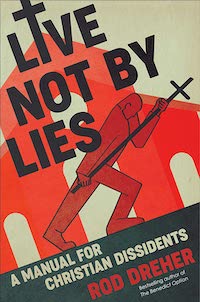 Live Not by Lies: A Manual for Christian Dissidents by Rod Dreher. Western society in general, and America in particular, is not today what it was a few decades or even a few years ago. The tenets of classical liberalism that built and sustained Western nations are slowly being reframed as the cause of human suffering rather than the solution to it. The Judeo-Christian worldview that informed its morality is being described as the dominant cause of sorrow, suffering, and oppression. Meanwhile, the principles of social justice, a refreshed form of Marxism, are beginning to be held up as a superior alternative, and this despite a century in which no ideology caused more pain or destroyed more lives. Lives Not By Lies serves two purposes and, in my assessment, succeeds at both of them. It sounds the alarm, warning people to wake up, to see that the enemy is already closing in on the gates. And, in the eventuality or even the likelihood that it is already too late to hold the hoards at bay, it conveys hard-won wisdom from those who have faced a very similar totalitarian foe and overcome. They may have suffered along the way, but they at least maintained their integrity. And in a similar way, we may not be able to overthrow the totalitarianism “out there,” but by heeding their counsel, and searching the scriptures for more like it, we can at least overthrow it “in here,” within ourselves. We can live with dignity, without regret. In a society increasingly drowning in fabrications and falsehoods, we, of all men, must and can live not by lies. (Buy it at Amazon; Read my review)
Live Not by Lies: A Manual for Christian Dissidents by Rod Dreher. Western society in general, and America in particular, is not today what it was a few decades or even a few years ago. The tenets of classical liberalism that built and sustained Western nations are slowly being reframed as the cause of human suffering rather than the solution to it. The Judeo-Christian worldview that informed its morality is being described as the dominant cause of sorrow, suffering, and oppression. Meanwhile, the principles of social justice, a refreshed form of Marxism, are beginning to be held up as a superior alternative, and this despite a century in which no ideology caused more pain or destroyed more lives. Lives Not By Lies serves two purposes and, in my assessment, succeeds at both of them. It sounds the alarm, warning people to wake up, to see that the enemy is already closing in on the gates. And, in the eventuality or even the likelihood that it is already too late to hold the hoards at bay, it conveys hard-won wisdom from those who have faced a very similar totalitarian foe and overcome. They may have suffered along the way, but they at least maintained their integrity. And in a similar way, we may not be able to overthrow the totalitarianism “out there,” but by heeding their counsel, and searching the scriptures for more like it, we can at least overthrow it “in here,” within ourselves. We can live with dignity, without regret. In a society increasingly drowning in fabrications and falsehoods, we, of all men, must and can live not by lies. (Buy it at Amazon; Read my review)
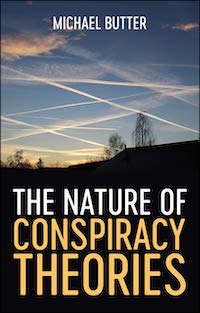 The Nature of Conspiracy Theories by Michael Butter. I read 7 or 8 books on conspiracy theory this year. Butter’s book was published in October of 2020, so includes plenty of contemporary examples of conspiracy theory. He makes a lot of excellent points about the nature of conspiracy theories, but, because he seems to be so heavily influenced by evolutionary psychology, they require some thought and adaptation to the Christian mind. Still, Butter does a masterful job of assessing the marks of the average conspiracy theory and the reasons they are so attractive, and for those reasons his book is well worth a read. Of special interest is his understanding that conspiracy theories are sometimes mainstream and sometimes opposed to the mainstream and, therefore, conspiracy theorists are sometimes considered respectable and other times considered renegades. He also helpfully distinguishes between “conspiracy theories” and “conspiracy rumors.” If you read one book on conspiracy theory, you may not do much better than this. (Buy it at Amazon)
The Nature of Conspiracy Theories by Michael Butter. I read 7 or 8 books on conspiracy theory this year. Butter’s book was published in October of 2020, so includes plenty of contemporary examples of conspiracy theory. He makes a lot of excellent points about the nature of conspiracy theories, but, because he seems to be so heavily influenced by evolutionary psychology, they require some thought and adaptation to the Christian mind. Still, Butter does a masterful job of assessing the marks of the average conspiracy theory and the reasons they are so attractive, and for those reasons his book is well worth a read. Of special interest is his understanding that conspiracy theories are sometimes mainstream and sometimes opposed to the mainstream and, therefore, conspiracy theorists are sometimes considered respectable and other times considered renegades. He also helpfully distinguishes between “conspiracy theories” and “conspiracy rumors.” If you read one book on conspiracy theory, you may not do much better than this. (Buy it at Amazon)
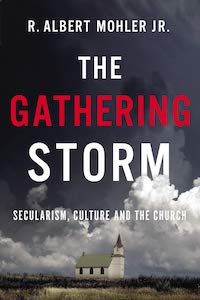 The Gathering Storm: Secularism, Culture, and the Church by Albert Mohler. Through his books, writing, and daily The Briefing podcast, Mohler spends much of his life examining and interpreting the intersection of church and culture. He, like many others, is concerned about the increasing and increasingly-obvious secularization of the Western world though, as an American, the United States is his first and greatest interest. But as he shows, what happens elsewhere does impact America, for “Americans had long believed that we were an exceptional nation and that secularization was a European reality, not ours. We can afford that illusion no longer. America is on the same trajectory, just on a somewhat delayed timetable.” What may be in the advanced stages in some European nations is now well underway in the US of A. The purpose of Mohler’s book is to identify how secularization has impacted various parts of society. He wants Christians to see the reality of it, then to consider how to stand strong, how to exercise moral courage, and how to honor God as the storm gathers. “One of Winston Churchill’s great virtues was his ability to see the storm and then to summon the courage and conviction to go into the storm. That is the challenge faced by Christians in the United States today—to see the storm and to understand it, and then to demonstrate the courage to face the storm.” (Buy it at Amazon or Westminster Books; Read my review)
The Gathering Storm: Secularism, Culture, and the Church by Albert Mohler. Through his books, writing, and daily The Briefing podcast, Mohler spends much of his life examining and interpreting the intersection of church and culture. He, like many others, is concerned about the increasing and increasingly-obvious secularization of the Western world though, as an American, the United States is his first and greatest interest. But as he shows, what happens elsewhere does impact America, for “Americans had long believed that we were an exceptional nation and that secularization was a European reality, not ours. We can afford that illusion no longer. America is on the same trajectory, just on a somewhat delayed timetable.” What may be in the advanced stages in some European nations is now well underway in the US of A. The purpose of Mohler’s book is to identify how secularization has impacted various parts of society. He wants Christians to see the reality of it, then to consider how to stand strong, how to exercise moral courage, and how to honor God as the storm gathers. “One of Winston Churchill’s great virtues was his ability to see the storm and then to summon the courage and conviction to go into the storm. That is the challenge faced by Christians in the United States today—to see the storm and to understand it, and then to demonstrate the courage to face the storm.” (Buy it at Amazon or Westminster Books; Read my review)
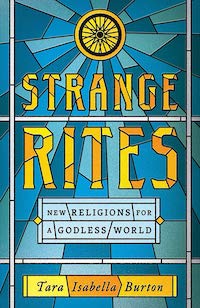 Strange Rites: New Religions for a Godless World by Tara Isabella Burton. (Note: The author of this book is not a Christian.) We have all heard by now of the rise of the “Nones,” that growing demographic that, when filling out a census, marks their religious affiliation as “None.” While until recently they made up only the smallest minority in America (and the rest of the Western world) they may now come close to forming a majority, especially among the younger generations. A common narrative among Christians is that people are migrating away from traditional Judeo-Christian faiths in favor of liberal secularism. But might it be possible that people are not actually abandoning religion as much as they are exploring, embracing, and even customizing a whole host of new spiritual traditions and subcultures? Might it be possible that people are not becoming less religious but more? These are the questions Tara Isabella Burton sets out to answer. Burton believes that behind the Nones are people whose beliefs and practices are, to varying degrees, a mix of traditional institutional religions and personal, intuitional spiritualities. She calls these people the “Remixed” and, in this book, provides a fascinating examination of their lives and beliefs. (Buy it at Amazon; Read my review)
Strange Rites: New Religions for a Godless World by Tara Isabella Burton. (Note: The author of this book is not a Christian.) We have all heard by now of the rise of the “Nones,” that growing demographic that, when filling out a census, marks their religious affiliation as “None.” While until recently they made up only the smallest minority in America (and the rest of the Western world) they may now come close to forming a majority, especially among the younger generations. A common narrative among Christians is that people are migrating away from traditional Judeo-Christian faiths in favor of liberal secularism. But might it be possible that people are not actually abandoning religion as much as they are exploring, embracing, and even customizing a whole host of new spiritual traditions and subcultures? Might it be possible that people are not becoming less religious but more? These are the questions Tara Isabella Burton sets out to answer. Burton believes that behind the Nones are people whose beliefs and practices are, to varying degrees, a mix of traditional institutional religions and personal, intuitional spiritualities. She calls these people the “Remixed” and, in this book, provides a fascinating examination of their lives and beliefs. (Buy it at Amazon; Read my review)
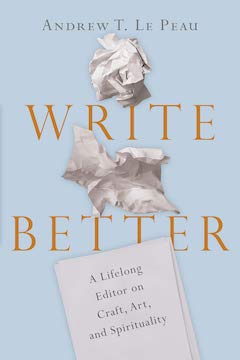 Write Better: A Lifelong Editor on Craft, Art, and Spirituality by Andrew T. Le Peau. One unique strength of Le Peau’s book is that it is written specifically for Christian writers. This narrows his audience and allows Le Peau to think in distinctly Christians ways, to illustrate in ways that appeal to Christians, and to focus an entire section on distinctly Christian themes. So, for example, he writes about the notion of calling and how we can have confidence we are called to the task of writing. He writes about the benefits and risks of writing biographically and about writing as a kind of spiritual discipline through which we examine ourselves and come to learn about ourselves and God. He writes about spiritual authority and the importance of writers ensuring they are not totally autonomous but have some authority structures in their life. He writes about stewardship and the discipline of serving people by exercising God-given gifts and talents. He writes as a Christian writer for Christian writers and in that way provides a tremendous gift. (Buy it at Amazon; Read my review)
Write Better: A Lifelong Editor on Craft, Art, and Spirituality by Andrew T. Le Peau. One unique strength of Le Peau’s book is that it is written specifically for Christian writers. This narrows his audience and allows Le Peau to think in distinctly Christians ways, to illustrate in ways that appeal to Christians, and to focus an entire section on distinctly Christian themes. So, for example, he writes about the notion of calling and how we can have confidence we are called to the task of writing. He writes about the benefits and risks of writing biographically and about writing as a kind of spiritual discipline through which we examine ourselves and come to learn about ourselves and God. He writes about spiritual authority and the importance of writers ensuring they are not totally autonomous but have some authority structures in their life. He writes about stewardship and the discipline of serving people by exercising God-given gifts and talents. He writes as a Christian writer for Christian writers and in that way provides a tremendous gift. (Buy it at Amazon; Read my review)
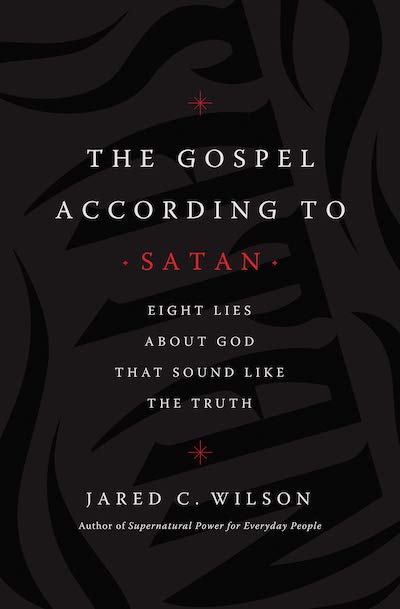 The Gospel According to Satan: Eight Lies about God that Sound Like the Truth by Jared Wilson. Satan is many things. But one fact the Bible makes perfectly clear is that he is a liar. Already by the third chapter of the Bible he has been deceitful (taking a physical form that is not his), he has been deceptive (getting people to question whether God is as good as they had thought), and he has told outright lies (full-out contradicting the words of God). And that’s just in the first three chapters! If Satan is such a liar and, in the fact, “the father of lies,” it should come as no surprise that he continues to float lies meant to confuse, deceive, and destroy human beings. Eight of these lies form the heart of Jared Wilson’s book—a book that will identify his lies so you can resist them with the truth. (Buy it at Amazon; Read my review)
The Gospel According to Satan: Eight Lies about God that Sound Like the Truth by Jared Wilson. Satan is many things. But one fact the Bible makes perfectly clear is that he is a liar. Already by the third chapter of the Bible he has been deceitful (taking a physical form that is not his), he has been deceptive (getting people to question whether God is as good as they had thought), and he has told outright lies (full-out contradicting the words of God). And that’s just in the first three chapters! If Satan is such a liar and, in the fact, “the father of lies,” it should come as no surprise that he continues to float lies meant to confuse, deceive, and destroy human beings. Eight of these lies form the heart of Jared Wilson’s book—a book that will identify his lies so you can resist them with the truth. (Buy it at Amazon; Read my review)
